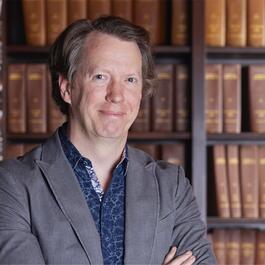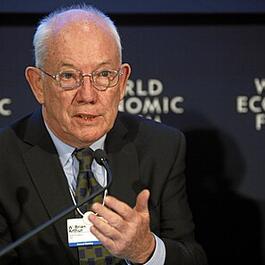
W. Brian Arthur on Complexity Economics
Economies in the modern world are incredibly complex systems. But when we sit down to think about them in quantitative ways, it’s natural to keep things simple at first. We look for reliable relations between small numbers of variables, seek equilibrium configurations, and so forth. But those approaches don’t always work in complex systems, and sometimes we have to use methods that are specifically adapted to the challenges of complexity. That’s the perspective of W. Brian Arthur, a pioneer in the field of complexity economics, according to which economies are typically not in equilibrium, not made of homogeneous agents, and are being constantly updated. We talk about the basic ideas of complexity economics, how it differs from more standard approaches, and what it teaches us about the operation of real economies. Support Mindscape on Patreon. W. Brian Arthur received his Ph.D. in operations research from the University of California, Berkeley. He is currently an External Faculty Member at the Santa Fe Institute, IBM Faculty Fellow, and Visiting Researcher in the Intelligent Systems Lab at PARC. He was formerly the Morrison Professor of Economics and Population Studies and Professor of Biology at Stanford. He is known for developing the theory of increasing returns in economics. Among his awards are a Guggenheim Fellowship, the Schumpeter Prize in economics, and the Lagrange Prize for complexity.Web siteSanta Fe web pageGoogle Scholar publicationsWikipediaAmazon author page See Privacy Policy at https://art19.com/privacy and California Privacy Notice at https://art19.com/privacy#do-not-sell-my-info.
From "Sean Carroll's Mindscape: Science, Society, Philosophy, Culture, Arts, and Ideas"




Comments
Add comment Feedback